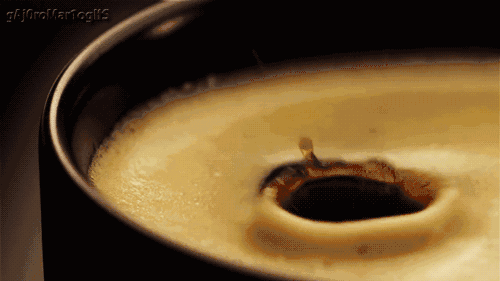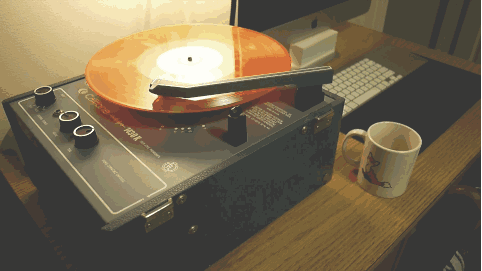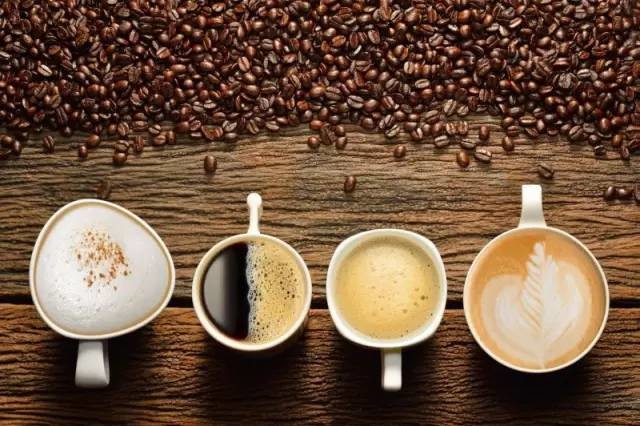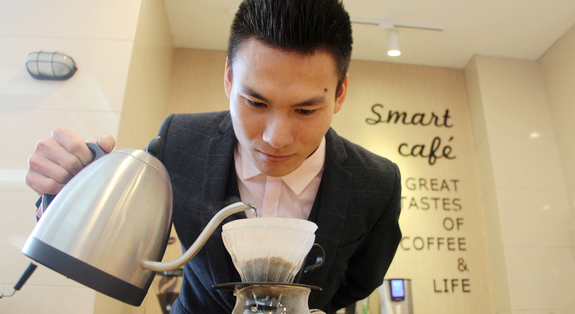Drinking coffee reflects your personality traits?
You think you never take drugs, but coffee is actually a drug.
In the words of psychologists and neuroscientists, coffee is probably the most widely used psychoactive substance (psychoactive substance) in the world, and it is legal and available everywhere.
Murray Carpenter, a pioneer in caffeine research, loves coffee himself. After years of investigation and research, he expounded a core point in his book the Story of caffeine (Caffeinated: How Our Daily Habit Helps, Hurts, and Hooks Us): caffeine is a drug.
In fact, caffeine addiction is listed as a mental disorder in the American Diagnostic and Statistical Manual of Mental Disorders (DSM-5), which means that caffeine users experience symptoms such as restlessness, nervousness, insomnia, excitement, as well as adverse reactions to the gastrointestinal, urinary and heart systems, and high doses of caffeine may even kill people. About 7% of the American population may be judged to have caffeine poisoning.
DSM-5 also mentioned "caffeine withdrawal", in which people who use caffeine for a long time feel headache, fatigue and irritability when they suddenly stop or reduce their intake. If you get up in the morning or after lunch and feel drowsy, headache, difficulty concentrating, and depressed because you don't drink coffee or other caffeinated drinks, you are likely to be addicted to coffee and have a withdrawal reaction.

? The thrill of coffee, like cocaine and marijuana.
Balzac, a master of literature, described how he felt when he drank coffee: "Coffee goes into my stomach." The human brain is aroused as if it were about to usher in a great war. " Balzac is a coffee addict. It is said that he took the coffee pot with him and drank about 50,000 cups of high-concentration coffee in his life. He died of a heart attack, which was thought by the doctor to have a lot to do with his habit of drinking coffee. In his later years, he developed a tolerance for coffee, often complaining that he drank more and more coffee, but the effect was getting worse and worse.
The similarity between coffee and cocaine has been proved for a long time. When you wake up in the morning and drink your first cup of coffee, caffeine has a cocaine-like effect: it stimulates the abnormal secretion of the neurotransmitter dopamine in the synaptic space, triggering a sense of euphoria. Similar feelings can be achieved by amphetamine drugs such as methamphetamine and ecstasy (and ecstasy is usually mixed with caffeine) and amphetamine (an addictive stimulant and antidepressant).

? You think drinking coffee makes you feel refreshed, but maybe it's just a "ritual" self-suggestion.
The researchers also found that for many long-term coffee drinkers, coffee doesn't really lift their spirits, and drinking coffee is just a ritual.
'We live in an era where efficiency is required all the time, 'says anthropologist Krystal Dracula 39, who wrote in Scientific American. And coffee, as a spiritual stimulus, has become something we naturally want to choose when we feel inefficient and depressed. We hope that it can quickly enter the brain through the blood and help us to lift our spirits, stay alert and focused, and ensure work efficiency when we are in bad shape.
However, for those who don't drink coffee very much, consuming coffee can boost their spirits, but long-term coffee drinkers tend to overestimate the benefits of caffeine, and the coffee they drink every day doesn't have the same positive effect on the brain, says Krystal.

? You drink not only coffee, but also an attitude towards life.
According to psychology writer Krystal Dracula 39, coffee is already "a lifestyle that applies to everyone's preferences and to all lifestyles." With the changes of the times, its meaning to the individual is also changing-as a way of life, its social attribute is gradually weakening, and its private attribute is increasing.
When drinking coffee was just emerging as a trend, it was more socially related, and we seldom went to drink coffee alone. In the 17th century, cafes in Paris, Vienna and London were the bases of heated discussion among politicians, writers and philosophers. Young Hemingway visited the famous James Joyce in the cafes in Paris. discuss the work over coffee with Fitzgerald. At that time, due to the classification of disciplines and fields, it gradually formed "Writer Cafe", "journalist Cafe", "Painters Cafe", "psychologist Cafe" and so on.
But drinking coffee is becoming something more relevant to ourselves: we drink coffee less and less for other people. Please yourself, live a serious life, and drinking coffee is already a manifestation of such an attitude towards life for many people.

? Choosing what kind of coffee to drink will reveal your personality traits.
When coffee really becomes the representative of personal life style, there are interesting research conclusions on the choice of coffee category. In 2013, clinical psychologist Ramani Durvasula conducted a survey of 1000 regular coffee drinkers and found that choosing different coffee can reveal different personality traits.
People who drink black coffee are more direct, simple and practical.
People who drink special categories (such as decaf) are more control, detail-oriented, perfectionist and obsessive-compulsive.
People who drink lattes may be a little jittery and like to please others
People who drink instant coffee are more childish and like an idle life.
In fact, we don't have to pay too much attention to the personality characteristics revealed by coffee, it depends more on our habits and ways of life. As the Austrian novelist Alfred Polgar once described people who go to cafes: "most people in cafes dislike the world as strongly as their desire for it. They want to be alone, but they need company."
Important Notice :
前街咖啡 FrontStreet Coffee has moved to new addredd:
FrontStreet Coffee Address: 315,Donghua East Road,GuangZhou
Tel:020 38364473
- Prev

The latest ranking | drinking coffee, the United States is not even in the top 20!
When drinking coffee, the United States did not even make the top 20 and did not see China at all; when drinking tea, China only ranked 19th! Question 1: what do we drink the most? Question 2: how much room for the development of these two industries? A few days ago, the London Coffee Festival (London Coffee Festival) has officially opened, coffee lovers from all over the UK and around the world gathered together
- Next

Live recording | A day for baristas in Xiamen office buildings
Character: Li Shaoping identity: barista time: April 14, 2017 in the impression, Hong Kong movies there are many small cafes in the office building, the shop is small, but attracted a lot of office workers. In fact, in Xiamen, there are also such small cafes, which add a relaxed atmosphere to the tense and busy office buildings and make the work around the clock fresh. And in a cafe like this, it must be
Related
- Beginners will see the "Coffee pull flower" guide!
- What is the difference between ice blog purified milk and ordinary milk coffee?
- Why is the Philippines the largest producer of crops in Liberia?
- For coffee extraction, should the fine powder be retained?
- How does extracted espresso fill pressed powder? How much strength does it take to press the powder?
- How to make jasmine cold extract coffee? Is the jasmine + latte good?
- Will this little toy really make the coffee taste better? How does Lily Drip affect coffee extraction?
- Will the action of slapping the filter cup also affect coffee extraction?
- What's the difference between powder-to-water ratio and powder-to-liquid ratio?
- What is the Ethiopian local species? What does it have to do with Heirloom native species?

